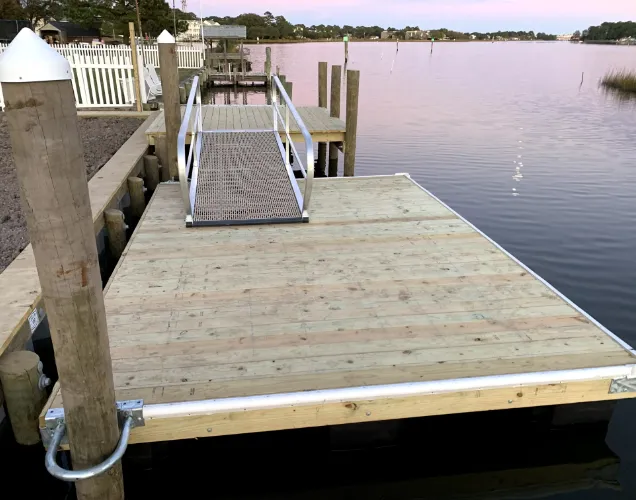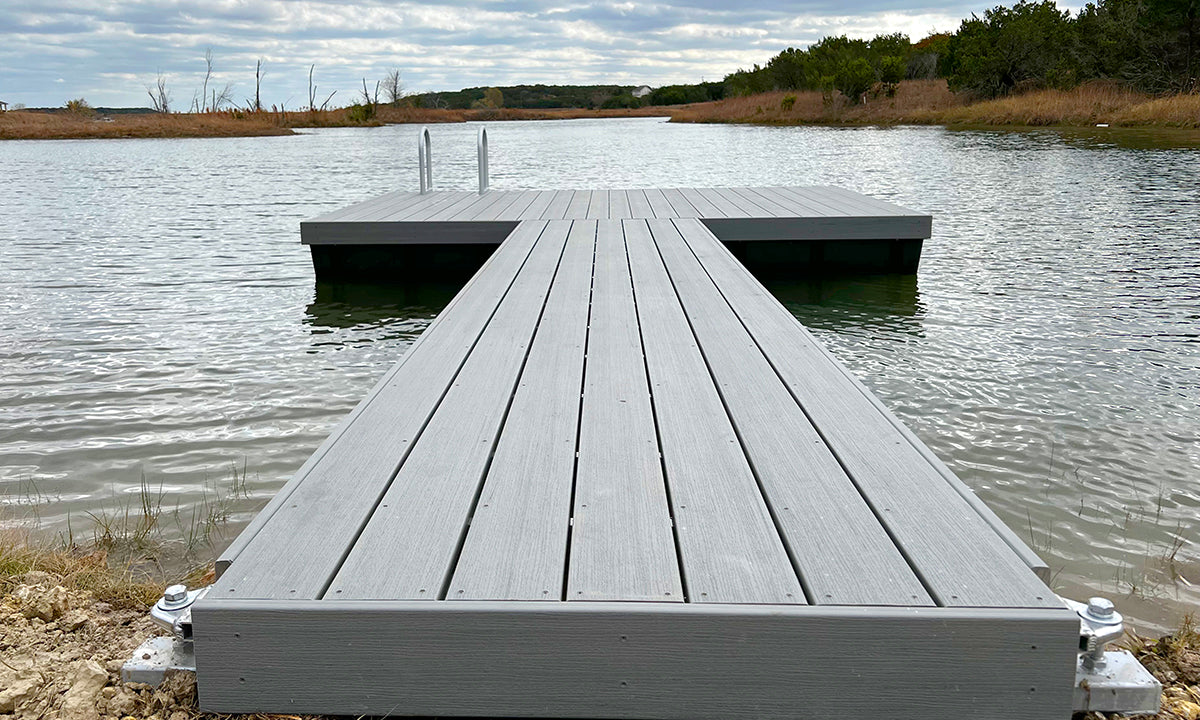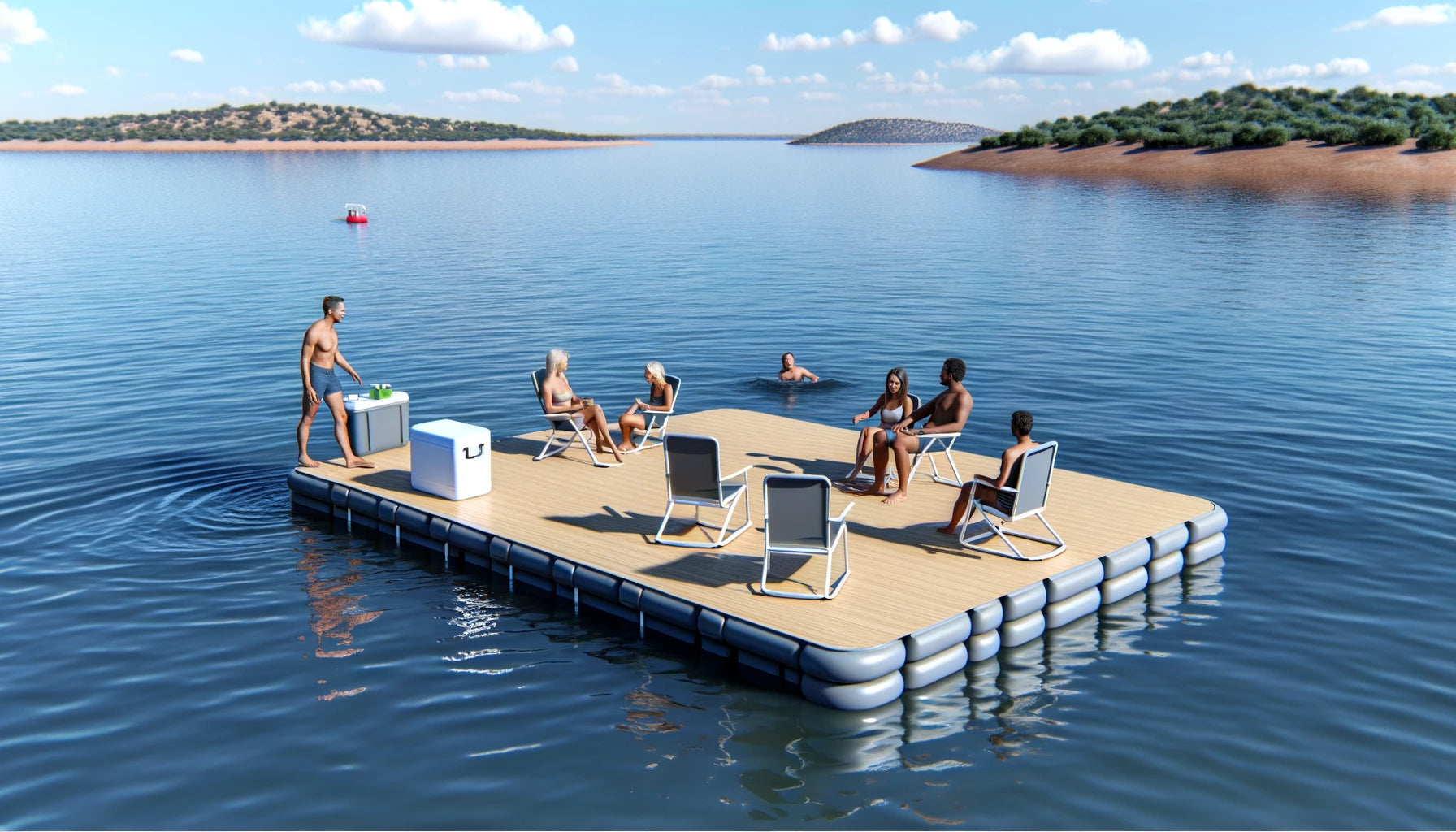The Ultimate Guide to Choosing the most effective Floating Docks
Selecting the excellent floating dock requires a thorough understanding of different elements that affect both efficiency and longevity. Factors such as dock kinds, materials, and crucial functions significantly affect your decision-making procedure. Additionally, considerations around setup and budget can additionally complicate the choice. By analyzing these elements methodically, one can make sure a financial investment that not only satisfies immediate requirements yet also improves total residential property value. As we check out these critical elements, it comes to be clear that the right options can bring about a long lasting and practical option tailored to your particular demands.
Recognizing Floating Dock Types
When selecting a floating dock, it is necessary to comprehend the numerous kinds readily available, as each offers distinct functions and applications. Floating docks primarily fall right into three groups: modular, fixed, and pontoon docks.
Modular docks are made up of specific areas that can be conveniently assembled or reconfigured, making them ideal for changing water levels and varied usages, such as entertainment tasks or commercial operations. Their versatility permits for modification based on particular demands.

Pontoon docks are defined by their resilient structure, commonly composed of several pontoons that provide stability and assistance. They are particularly appropriate for bigger vessels and are typically utilized in marinas or for waterside buildings. Recognizing these kinds help in picking the most proper floating dock to satisfy details needs, making sure optimum functionality and security.
Trick Products for Sturdiness
Picking the right materials for floating docks substantially influences their durability and durability. One of the most usual products consist of timber, plastic, steel, and composite materials, each offering distinct advantages and restrictions.
Timber, usually favored for its aesthetic appeal, requires regular maintenance to endure wetness and degeneration. Pressure-treated lumber can boost resistance to rot, yet it may still be susceptible to bugs and weathering.

Plastic docks, made of high-density polyethylene (HDPE), are resistant to deterioration, UV radiation, and effect, making them a prominent choice for coastal settings. Their light-weight nature additionally assists in simple installation and relocation.
Steel docks, typically created from aluminum or galvanized steel, provide phenomenal stamina and resilience. They are immune to corrosion, specifically when treated, yet may call for extra insulation to avoid warm accumulation in warm climates.
Composite materials, incorporating wood fibers and plastics, supply the benefits of both timber and plastic, resisting dampness and fading while requiring marginal maintenance. - floating docks
Eventually, the selection of materials need to align with ecological problems, intended usage, and upkeep preferences to make certain the floating dock continues to be functional and cosmetically pleasing gradually.
Important Attributes to Take Into Consideration
While the option of products is important, considering essential features for floating docks is similarly vital to ensure optimal performance and individual contentment. One key feature to examine is the dock's buoyancy ability, which establishes how much weight it can support without submerging. floating dock builder. This is important for suiting boats, personal watercraft, and also leisure activities
Additionally, portability is a considerable factor to consider. Depending upon your requirements, you might desire a dock that is very easy to dismantle and transfer, specifically if you intend to transfer it seasonally. Security is an additional crucial attribute; a properly designed floating dock must lessen motion caused by wind and water currents, offering a protected platform for customers.
Safety and security functions, such as non-slip surface areas and rounded edges, are also critical to stop accidents, specifically in damp problems. Think about the availability of devices, such as ladders, cleats, and bumpers, which can boost the performance of your dock.
Setup and Upkeep Tips
Establishing up and maintaining a drifting dock requires careful preparation and attention to information to guarantee its durability and optimal efficiency. Begin by selecting an ideal place that minimizes direct exposure to strong currents and article waves, which can create deterioration. Ensure that the water deepness suffices for the dock's elevation and that it is secured securely to avoid movement.
Throughout installation, comply with the manufacturer's standards very closely, as incorrect setting up can jeopardize security. Use high-grade materials immune to corrosion, such as light weight aluminum or dealt with wood, to boost sturdiness. Frequently inspect all elements, consisting of floats, ports, and securing systems, for signs of damages or wear.
If your dock uses flotation devices, guarantee they continue to be complimentary and news undamaged from leaks. By adhering to these installation and maintenance tips, you can appreciate a reliable and useful floating dock for years to come.
Budgeting for Your Dock
Budgeting for your dock is an essential action that can dramatically influence your total contentment and financial investment in a waterside building. Developing a clear budget plan helps you browse the different options available and guarantees you make notified decisions that align with your economic capacities.
Begin by figuring out the size and design of the dock you call for, as these variables will considerably influence the price. Floating docks can differ substantially in cost, depending on products, buoyancy, and features like ramps and devices. Research various makers and suppliers to contrast prices and understand the marketplace value.
Along with preliminary prices, think about ongoing costs such as upkeep, insurance policy, and potential fixings. Assign funds for these reoccuring expenses to stay clear of surprises down the line. It's additionally prudent to spending plan for any needed permits or examinations, which may be called for by local guidelines.
Lastly, bear in mind the potential roi. A well-planned dock can improve your residential or commercial property's worth and see page allure, supplying a favorable financial effect in the lengthy term. By budgeting efficiently, you can make sure that your dock meets your requirements without endangering your economic stability.
Conclusion
In conclusion, picking the excellent floating dock necessitates a detailed examination of various factors, consisting of dock types, products, necessary functions, and installation procedures. Careful factor to consider of monetary restraints will further make certain a sound financial investment.

While the option of products is essential, taking into consideration important attributes for floating docks is just as essential to make certain optimal performance and customer complete satisfaction.Setting up and keeping a floating dock calls for mindful planning and interest to information to ensure its durability and ideal efficiency. Floating docks can vary substantially in price, depending on materials, buoyancy, and features like devices and ramps.In verdict, selecting the optimal floating dock demands an extensive analysis of numerous factors, including dock types, materials, necessary attributes, and installment procedures.